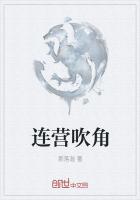M. Anatole France, historian and adventurer, has given us many profitable histories of saints and sinners, of Roman procurators and of officials of the Third Republic, of GRANDES DAMES and of dames not so very grand, of ornate Latinists and of inarticulate street hawkers, of priests and generals--in fact, the history of all humanity as it appears to his penetrating eye, serving a mind marvellously incisive in its scepticism, and a heart that, of all contemporary hearts gifted with a voice, contains the greatest treasure of charitable irony. As to M. Anatole France's adventures, these are well-known. They lie open to this prodigal world in the four volumes of the VIE LITTERAIRE, describing the adventures of a choice soul amongst masterpieces. For such is the romantic view M. Anatole France takes of the life of a literary critic. History and adventure, then, seem to be the chosen fields for the magnificent evolutions of M. Anatole France's prose; but no material limits can stand in the way of a genius. The latest book from his pen--which may be called golden, as the lips of an eloquent saint once upon a time were acclaimed golden by the faithful--this latest book is, up to a certain point, a book of travel.
I would not mislead a public whose confidence I court. The book is not a record of globe-trotting. I regret it. It would have been a joy to watch M. Anatole France pouring the clear elixir compounded of his Pyrrhonic philosophy, his Benedictine erudition, his gentle wit and most humane irony into such an unpromising and opaque vessel. He would have attempted it in a spirit of benevolence towards his fellow men and of compassion for that life of the earth which is but a vain and transitory illusion. M. Anatole France is a great magician, yet there seem to be tasks which he dare not face. For he is also a sage.
It is a book of ocean travel--not, however, as understood by Herr Ballin of Hamburg, the Machiavel of the Atlantic. It is a book of exploration and discovery--not, however, as conceived by an enterprising journal and a shrewdly philanthropic king of the nineteenth century. It is nothing so recent as that. It dates much further back; long, long before the dark age when Krupp of Essen wrought at his steel plates and a German Emperor condescendingly suggested the last improvements in ships' dining-tables. The best idea of the inconceivable antiquity of that enterprise I can give you is by stating the nature of the explorer's ship. It was a trough of stone, a vessel of hollowed granite.
The explorer was St. Mael, a saint of Armorica. I had never heard of him before, but I believe now in his arduous existence with a faith which is a tribute to M. Anatole France's pious earnestness and delicate irony. St. Mael existed. It is distinctly stated of him that his life was a progress in virtue. Thus it seems that there may be saints that are not progressively virtuous. St. Mael was not of that kind. He was industrious. He evangelised the heathen. He erected two hundred and eighteen chapels and seventy-four abbeys. Indefatigable navigator of the faith, he drifted casually in the miraculous trough of stone from coast to coast and from island to island along the northern seas. At the age of eighty-four his high stature was bowed by his long labours, but his sinewy arms preserved their vigour and his rude eloquence had lost nothing of its force.
A nautical devil tempting him by the worldly suggestion of fitting out his desultory, miraculous trough with mast, sail, and rudder for swifter progression (the idea of haste has sprung from the pride of Satan), the ****** old saint lent his ear to the subtle arguments of the progressive enemy of mankind.
The venerable St. Mael fell away from grace by not perceiving at once that a gift of heaven cannot be improved by the contrivances of human ingenuity. His punishment was adequate. A terrific tempest snatched the rigged ship of stone in its whirlwinds, and, to be brief, the dazed St. Mael was stranded violently on the Island of Penguins.
The saint wandered away from the shore. It was a flat, round island whence rose in the centre a conical mountain capped with clouds. The rain was falling incessantly--a gentle, soft rain which caused the ****** saint to exclaim in great delight: "This is the island of tears, the island of contrition!"Meantime the inhabitants had flocked in their tens of thousands to an amphitheatre of rocks; they were penguins; but the holy man, rendered deaf and purblind by his years, mistook excusably the multitude of silly, erect, and self-important birds for a human crowd. At once he began to preach to them the doctrine of salvation. Having finished his discourse he lost no time in administering to his interesting congregation the sacrament of baptism.
If you are at all a theologian you will see that it was no mean adventure to happen to a well-meaning and zealous saint. Pray reflect on the magnitude of the issues! It is easy to believe what M. Anatole France says, that, when the baptism of the Penguins became known in Paradise, it caused there neither joy nor sorrow, but a profound sensation.
M. Anatole France is no mean theologian himself. He reports with great casuistical erudition the debates in the saintly council assembled in Heaven for the consideration of an event so disturbing to the economy of religious mysteries. Ultimately the baptised Penguins had to be turned into human beings; and together with the privilege of sublime hopes these innocent birds received the curse of original sin, with the labours, the miseries, the passions, and the weaknesses attached to the fallen condition of humanity.
At this point M. Anatole France is again an historian. From being the Hakluyt of a saintly adventurer he turns (but more concisely)into the Gibbon of Imperial Penguins. Tracing the development of their civilisation, the absurdity of their desires, the pathos of their folly and the ridiculous littleness of their quarrels, his golden pen lightens by relevant but unpuritanical anecdotes the austerity of a work devoted to a subject so grave as the Polity of Penguins. It is a very admirable treatment, and I hasten to congratulate all men of receptive mind on the feast of wisdom which is theirs for the mere plucking of a book from a shelf.















